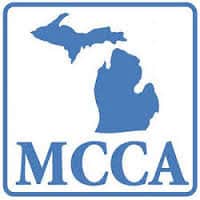
Leaders ask Legislature for $56 million to get more nurses in the field
Lansing, Michigan – Michigan higher education and healthcare leaders today unveiled a collaborative plan to increase educational options to produce more highly-qualified nurses and address the nursing shortage across the state.
“Michigan’s community colleges and 4-year colleges and universities have come together to
combat the nursing shortage, creating an innovative and affordable way to earn bachelor’s
degrees in nursing at 28 new locations across the state,” said Brandy Johnson, Michigan
Community College Association President.
The plan was developed by the Michigan Community College Association, Michigan
Association of State Universities, Michigan Independent Colleges and Universities, and the
Michigan Health & Hospital Association. It is also backed by the Michigan Works! Association,
Michigan Association of Colleges of Nursing and the Michigan Council of Nursing Education
Administrators.
“Michigan’s public universities are pleased to have worked with our higher education partners
to craft this common-sense and innovative approach to creating a more highly-skilled nursing
workforce capable of fulfilling the critical role nurses play within the state’s healthcare
community,” said Dr. Daniel Hurley, CEO of Michigan Association of State Universities.
It would create seamless opportunities for nurses with associate degrees to complete their
Bachelor of Science in nursing (BSN) on community college campuses. Through this program,
community colleges would partner with a four-year college or university and design a BSN
completion program with input from local employers and local workforce development
agencies.
“This plan ensures that Michigan nursing students have every option possible to get high-quality education and training on nearly every college, university or community college campus
in this state,” said Robert LeFevre, president of Michigan Independent Colleges and
Universities. “
The group is seeking a $56 million state budget investment to increase access and affordability
of Bachelor of Science in Nursing programs for students who completed their Associate Degree
in Nursing at a Michigan community college. Under the plan, grants would be administered by
the Department of Labor and Economic Opportunity (LEO) and be awarded to Michigan
community colleges. Each community college would be eligible for a $2 million grant for
administering the program.
"We are proud to work in partnership with colleagues to develop an innovative strategy
to strengthen Michigan's nursing workforce by ensuring students throughout our state have
access to a high-quality baccalaureate nursing education," said Laurie Lauzon Clabo, PhD, RN,
FAAN, Michigan Association of Colleges of Nursing president-elect.
This program would significantly increase the number of nurses with bachelor’s degrees that
are in-demand at Michigan’s hospitals.
“Staffing shortages are impacting Michigan hospitals throughout the state, particularly in the
areas of nursing,” said Brian Peters, Michigan Health & Hospital Association CEO. “This plan will
help us get more highly-skilled professionals into the field quickly and increase access to
nursing education in more communities across the state.”
ABOUT THE MICHIGAN COMMUNITY COLLEGE ASSOCIATION
The Michigan Community College Association fosters collaboration, connection, and partnerships among the 28 Michigan public community colleges and their stakeholders. The MCCA provides strong legislative and public advocacy in Lansing and throughout Michigan, works to improve the image and credibility of community colleges, and advances numerous shared initiatives through the Michigan Center for Student Success, Michigan Colleges Online, and the Michigan New Jobs Training Program.
ABOUT MASU
The Michigan Association of State Universities serves as the coordinating board for Michigan’s 15 public universities, providing advocacy and fostering policy to maximize the collective value these institutions provide in serving the public interest and the State of Michigan.
ABOUT MICU
Michigan Independent Colleges & Universities represent the state’s not-for-profit independent colleges and universities. Our goal is to increase awareness of the impact MICU members have on higher education in Michigan. With over 125,000 students at our institutions, Michigan independent colleges educate approximately 25 percent of all college students in the state. MICU serves its members through government relations, public policy development, and advocacy. For more information and data related to Michigan’s independent colleges and universities, please visit www.micolleges.org.
ABOUT MHA
Based in greater Lansing, the MHA advocates in Michigan and Washington, DC, on behalf of healthcare providers and the communities and patients they serve. The MHA is a nationally recognized leader on initiatives that protect and promote quality, cost-effective and accessible healthcare. To learn more, visit www.mha.org or follow the MHA on Facebook and Twitter.
###















